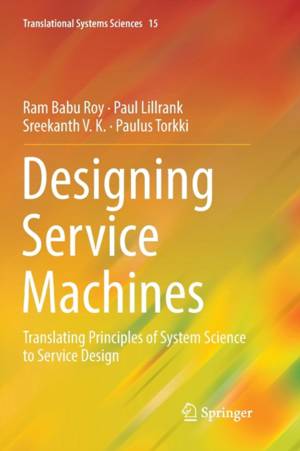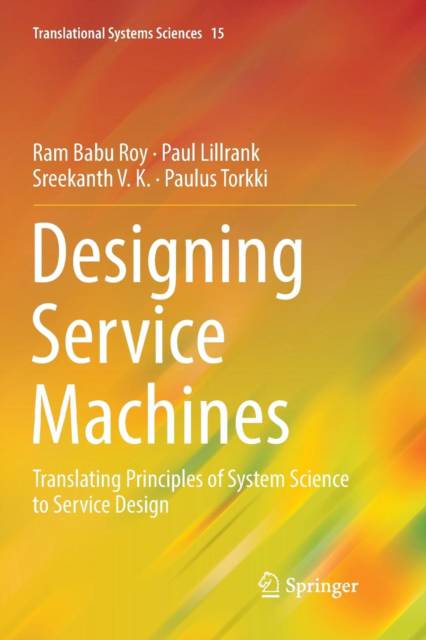
- Afhalen na 1 uur in een winkel met voorraad
- Gratis thuislevering in België vanaf € 30
- Ruim aanbod met 7 miljoen producten
- Afhalen na 1 uur in een winkel met voorraad
- Gratis thuislevering in België vanaf € 30
- Ruim aanbod met 7 miljoen producten
Zoeken
Designing Service Machines
Translating Principles of System Science to Service Design
Ram Babu Roy, Paul Lillrank, Sreekanth V K, Paulus Torkki
€ 83,95
+ 167 punten
Uitvoering
Omschrijving
This book presents a general conceptual framework to translate principles of system science and engineering to service design. Services are co-created immaterial, heterogeneous, and perishable state changes. A service system includes the intended benefit to the customer and the structure and processes that accomplish this benefit. The primary focus is on the part of the service system that can reproduce such processes, called here a Service Machine, and methodological guidelines on how to analyze and design them. While the benefit and the process are designed based on the domain knowledge of each respective field, service production systems have common properties. The Service Machine is a metaphor that elicits the fundamental characteristics of service systems that do something efficiently, quickly, or repeatedly for a defined end. A machine is an artifact designed for a purpose, has several parts, such as inputs, energy flows, processors, connectors, and motors assembled as per design specifications. In case of service machine, the components are various contracts assembled on contractual frames. The book discusses Emergency Medical Services (EMS) and Emergency Departments (ED) as cases. They illustrate that service machines need to be structured to adapt to the constraints of the served market acknowledging the fact that services are co-created through the integration of producers' and customers' resources. This book is highly recommended for those who are interested in understanding the fundamental concepts of designing service machines.
Specificaties
Betrokkenen
- Auteur(s):
- Uitgeverij:
Inhoud
- Aantal bladzijden:
- 82
- Taal:
- Engels
- Reeks:
- Reeksnummer:
- nr. 15
Eigenschappen
- Productcode (EAN):
- 9789811345326
- Verschijningsdatum:
- 19/01/2019
- Uitvoering:
- Paperback
- Formaat:
- Trade paperback (VS)
- Afmetingen:
- 156 mm x 234 mm
- Gewicht:
- 149 g

Alleen bij Standaard Boekhandel
+ 167 punten op je klantenkaart van Standaard Boekhandel
Beoordelingen
We publiceren alleen reviews die voldoen aan de voorwaarden voor reviews. Bekijk onze voorwaarden voor reviews.











